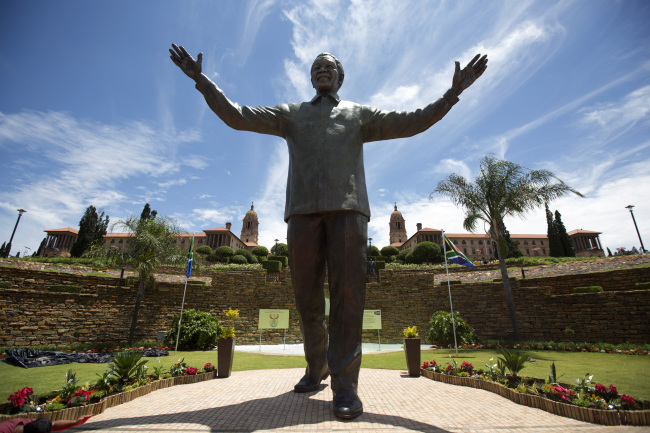South Africa inspires troubled world with Mandela’s words
Monday is Nelson Mandela International Day, which commemorates the late South African president’s sacrifices during the antiapartheid struggle and his contributions to universal human rights.
The United Nations General Assembly in 2009 chose Mandela’s birthday on July 18 to honor his life and message, calling on people worldwide to devote 67 minutes of their lives to serving others -- through works such as feeding, schooling and sheltering the needy -- in recognition of the late leader’s charity over 67 years.
According to South African Ambassador Nozuko Gloria Bam, his clarion call, “It’s in your hands,” is more relevant than ever in today’s world marred by raucous racism, nativist nationalism, authorized authoritarianism, cultural conservatism and socioeconomic separatism.
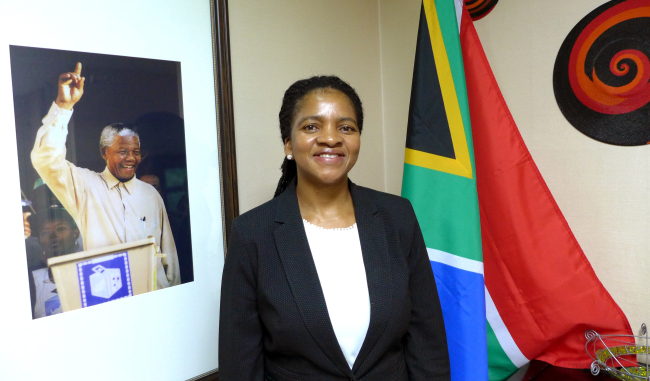
“If everyone could pay heed to his call to take action and inspire change, we can all build a better world,” the envoy told The Korea Herald last week. “His major legacy was that of forgiveness and reconciliation. After being imprisoned for so many years under the most inhumane conditions, Mandela walked out of prison and spread peace and forgiveness to heal the nation. South Africa became a nonracial, nonsexist, democratic new nation as a result.”
Acknowledging that her country was divided along ethnic, economic and cultural lines for five decades under the apartheid regime, Bam stressed that Mandela had dedicated his entire life to peace, justice and equality.
Mandela was released in 1990 after 27 years of imprisonment, amid growing international pressure and tensions over the racial civil war. He and former South African President F. W. de Klerk negotiated the apartheid’s dissolution and spawned the 1994 general election -- the first racially democratic one that conferred Mandela presidency.
Spearheading a coalition government, Mandela advocated mending fences with former foes and set up the Truth and Reconciliation Commission, which investigated past human rights abuses and redressed grievances. Through various reforms, his administration redistributed land, combatted poverty and expanded health care.
Across the country, organizations such as the United Democratic Front, the South African Council of Churches, led by Archbishop Desmond Tutu, and various other civil societies sprang to action to liquidate bigoted legacies of yesteryear.
For many, Mandela embodied the national philosophy of “Ubuntu” -- meaning “human kindness” or “a universal bond of sharing that connects all humanity.” He promoted coexistence and mutual acceptance and served as a moral guide for people during the country’s transition to majority rule in the early 1990s.
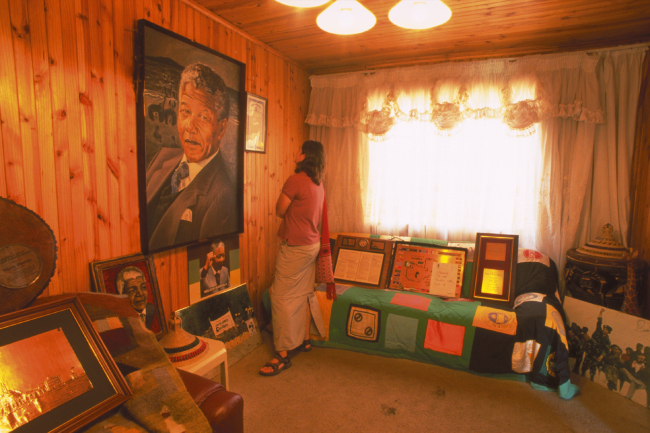
“South Africa still has pockets of inequality and elements of racism,” Bam conceded, adding that her government has devised and implemented various policies to iron out thorny issues.
“In our case, reconciliation had to be carried out on multiple levels of the individual, community and nation,” the diplomat said.
“As all transgressions could not be resolved through the TRC alone, issues had to be prioritized through policies and institutions such as the Land Commission, the South African Human Rights Commission and the Commission for Gender Equality were established to effect justice.”
For grave violations such as murder and kidnapping, perpetrators were tried by the court with due punishment, according to Bam.
Noting many people unavoidably became accomplices to misdeeds, often coerced from above, she pointed out that those who confessed their involvement received public sympathy and assisted in disclosing truths.
Nevertheless the transitional justice process through the TRC was not wholly accepted, according to Bam, as it also uncovered buried memories and exposed scars.
Citing a state-initiated review of social cohesion in 2012, during which all government departments monitored integration, Bam said young South Africans have generally embraced the winds of change, while some older generations were swept up by the sea changes.
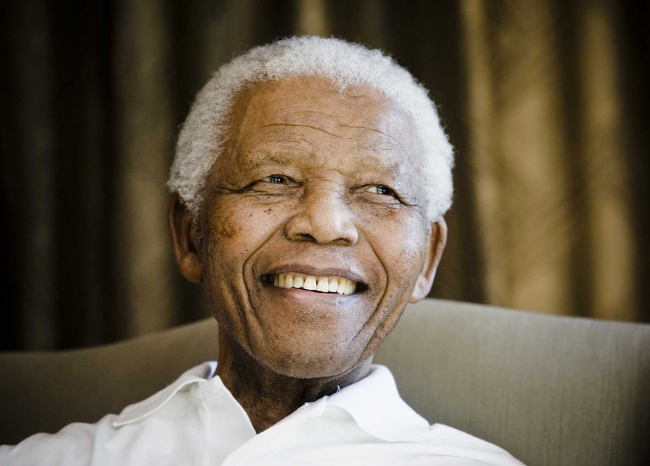
“Inspired by Mandela, South Africa has aimed at promoting the peace and prosperity of Africa,” she stressed. “Our foreign policy is the ‘diplomacy of Ubuntu.’ We believe that our country is not an island but part of the southern African region and the larger African continent.”
On the political and security front, Bam explained, South Africa is driving continental integration by enhancing South-South and North-South cooperation through the African Union, alongside advancing national interests by participating in global affairs.
In the economic sphere, the country is ramping up industrialization within the framework of the Southern African Development Community, with the aim of strengthening regional manufacturing capacity.
“We seek to radically alter the colonial and postcolonial modes of operation, where Africa remains a raw materials supplier,” the diplomat said.
“Africa should produce value-added goods for export into the global economy. It is only in this way that we can address the paradox of a resource-rich continent inhabited by poverty-stricken peoples and mark a decisive break with the past.”
To facilitate continental economic integration, various organizations were launched, including the Southern African Development Community, the Common Market for Eastern and Southern Africa and the East African Community Tripartite Free Trade Area. The free-trade area, which merges 26 countries into a single economic zone with 625 million people and a combined gross domestic product of $1.6 billion, will significantly spur intra-African trade, she said.
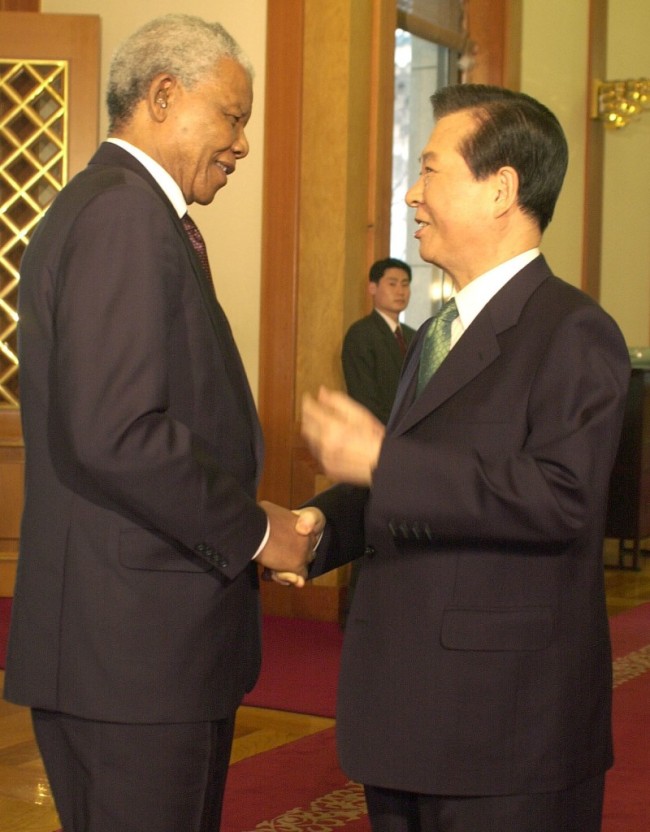
Regarding relations with Korea, the envoy underlined that South Africa is South Korea’s largest trading partner from the continent.
“We have complementary economies in areas such as automotive, electronics, agro processing, wines, boats, defense and flowers,” she said. “We are leveraging our opportunities before us with year-round delegations taking part in various seminars and exhibition.”
Currently, the two governments handle diplomacy through the annual policy consultative forum -- deputy foreign ministerial-level -- which was last held in 2014 due to the unavailability of diplomats last year. A number of programs covering the oceans economy, education, rural development, information communications technology and other trade and investment were agreed upon, and are now transpiring across relevant ministries and agencies, according to the embassy.
Bam said that her goal was to elevate the forum to a joint cooperation council this year, which would involve the meeting of foreign ministers. It would open up opportunities for key strategic programs of bilateral and multilateral significance, eventually leading to possible presidential summits, she added.
By Joel Lee ([email protected])
